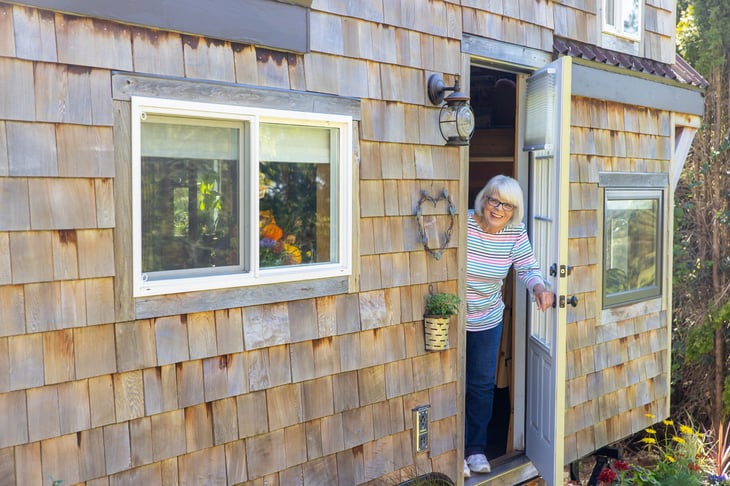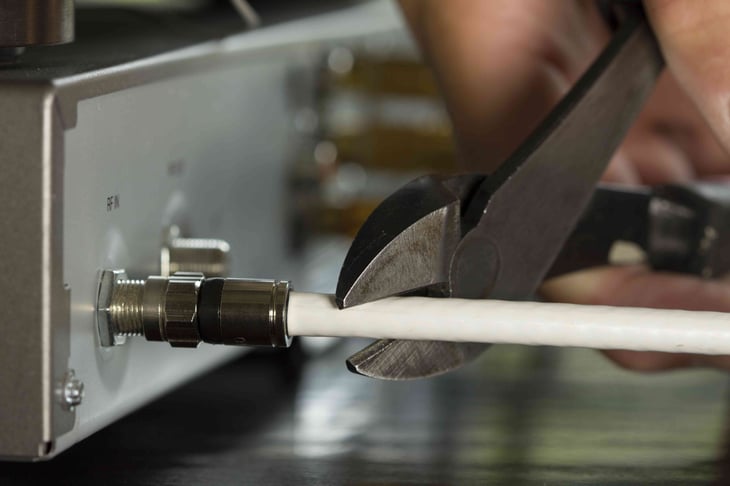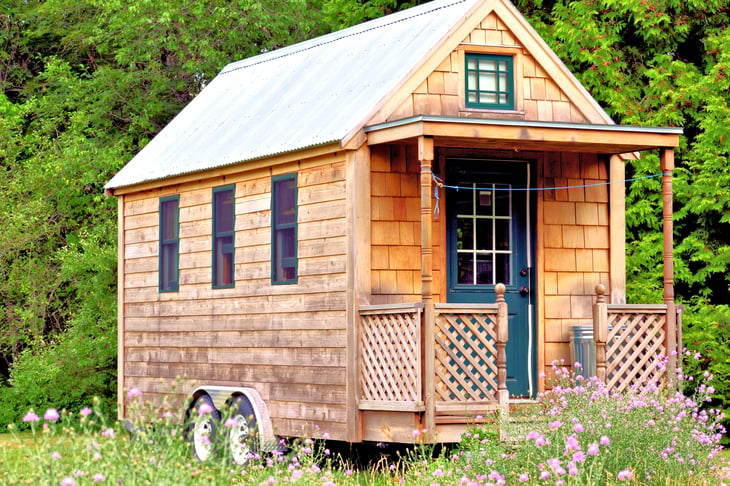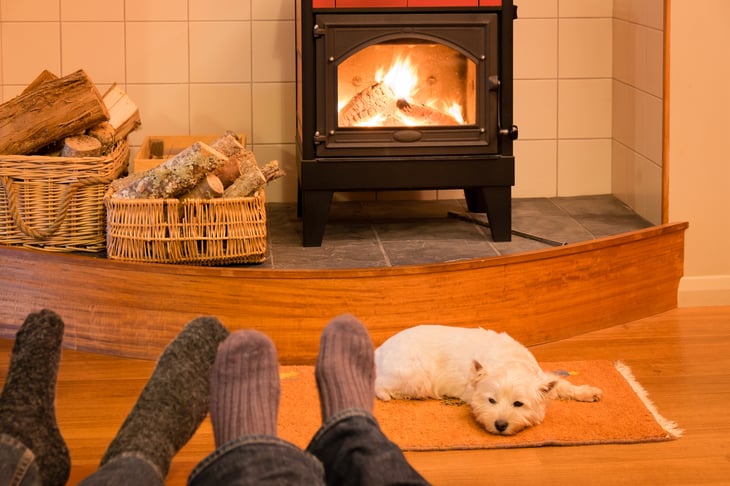
Here at Money Talks News, we spend a lot of time telling you how to save money.
We’ve explained how to save $1,000 quickly, how to never pay full price and even how to cut costs painlessly.
But what happens once you’ve cut the lattes and canceled the gym membership, and you’re still burning a hole in your checking account each month? At that point, it may be time to pull out the big guns — time to get extreme.
Here are some out-of-the-box ways to save big. These go beyond the frugal tips that save you pennies. Instead, they are things that may require big lifestyle changes, but that will pay off in the form of serious savings.
1. Turn off the A/C

About 6% of all electricity produced in the U.S. is used by air conditioners, which collectively cost homeowners around $29 billion per year, according to the U.S. Department of Energy. So turning off the A/C — and leaving it off — could save you some serious cash.
In some parts of the country, this would hardly be considered extreme — one-fourth of homes don’t have an A/C system, according to the DOE. But in hotter areas, it’s not for the faint of heart — and not something you should try if it would endanger your health.
If you want to give it a shot, we’ve got directions for how to make your own mini A/C as well as “5 Unusual but Effective Tips To Stay Cool Without A/C.”
2. Unplug and live like it’s 1949

We love our electronic toys, but using them costs us a pretty penny.
Cutting cable TV seems to be fairly standard money-saving advice. A more extreme way to save might be to not only cut cable but also to eliminate internet and mobile phones altogether.
Unless you have a legitimate need to have the internet or a smartphone for work, you can probably get by with checking your email once or twice a week at the library. As for your cellphone, you probably don’t need to be accessible 24/7, right? Try carrying a prepaid phone for emergencies.
Less extreme options: If you don’t want to completely unplug at home, at least lower your bills. Free streaming services, for example, let you cut the cost of in-home entertainment entirely — see “21 Streaming Services That Are Completely Free.”
You can also use Money Talks News’ free cellphone and plan search tool to find cheaper options for phone service.
3. Move to a tiny house

Imagine your whole family squeezed into a home the size of your living room. It may sound crazy, but the tiny house movement can be the ticket to big savings.
Tiny houses typically run from 250 to 600 square feet, and they may be permanent or mobile. It may seem unrealistic to pack several people into such a small space, but some families do it — and quite happily too.
Small houses mean small bills. Plus, with minimal storage space, you may find you are forced to stop spending money on stuff you don’t need.
Ready to take the plunge? Check out “7 Ways to Know You’re Ready for a Tiny House.”
Less extreme options: If a tiny house isn’t for you, cut your bills by moving to a smaller home. It costs a lot less to heat or air-condition 1,000 square feet than it does to keep 2,500 square feet as warm or cool as you like it.
Or, move to an apartment. Sure, you’re not building equity, but you’re also eliminating all of your maintenance costs and possibly some utility bills.
4. Park the car permanently

You can save some serious money by selling your vehicle and relying on your feet, bicycle or public transportation instead. If you need a car for a longer trip, rent one.
Less extreme options: If you can’t bear to be without a vehicle, at least drive it less. Carpool whenever possible and combine errands. You can also go in with a neighbor or friend and buy a car to share.
5. Go veggie

Beef takes a bite out of many grocery budgets. Extreme savers might want to eliminate meat altogether from their diet. Of course, vegetarian diets can be expensive if you’re buying out of season or loading up on specialty products. So plan your menu with care.
Less extreme options: Maybe you aren’t ready to give up meat completely. You can always have one or two meatless days a week or buy cheaper cuts of meat to keep costs down.
6. Find your own heating fuel

The cheapest way to replace costly heating oil and propane may be to install a wood-burning stove. If you have trees on your property, you can cut your own wood for free heating. If not, you might need to buy wood, which shouldn’t be too costly compared with other fuel sources.
However, please be sure any stove is installed by a professional and inspected each year before use. Install carbon monoxide detectors too. Dying from an improperly vented stove may be one extreme way to save money, but we would prefer that our Money Talks News readers stick around to enjoy more great articles for years to come.
Less extreme options: While a little more expensive than a wood-burning stove, a pellet stove is another inexpensive heating option. Also, if you have a little money stored up in savings, you might want to see about converting to natural gas. That might cost a bit upfront but could save money in the long run.
If you already have natural gas or none of these options will work, you can try the conventional advice of installing a programmable thermostat and adjusting the temperature at night and when the house is empty during the day to use less energy.
7. Embrace your neighbors with communal living

Cut down living expenses by living in a commune — or an intentional community, as they are now often called.
These living arrangements vary significantly from community to community, but most involve shared work and shared expenses. In addition, many of these communities are based upon values such as conservation or voluntary simplicity.
The Foundation for Intentional Community maintains a searchable directory.
Less extreme options: Rather than moving to a commune, embrace communal living in your own home by renting out a room. A step above that might be buying a duplex or similar property to share with a friend’s family.
8. Hold your breath and dumpster-dive

Some folks curb-surf for useful items others have left out as trash while others actually climb into garbage bins to retrieve overstock food from restaurants and stores.
I have a hard time recommending this extreme way to score free stuff. The law can be a bit hazy about the legality of dumpster diving, particularly when the trash is located on private property and not on the curbside.
Less extreme options: Instead of dumpster diving, you could try Freecycle to find freebies in your area. Also, send out the word to family and friends that you are on the hunt for reclaimed items, and you might be the first person they call before sending unwanted goods to the curb.
9. Turn the heat way down

Are you tough enough for this strategy? Blogger Tanja Hester writes in Forbes that she and her husband have learned to tolerate an indoor temperature of 55 degrees in winter.
After moving into a new home, the couple got a whopping bill for heating fuel. They began to search for the lowest indoor temperature they could handle. Their answer: 55 degrees, which probably would be pretty frigid for most of us.
Hester says:
“Any colder and we actively shiver … which is unhealthy. But 55 degrees we can handle by bundling up. We warn guests who visit in the winter!”
Less extreme option: If you don’t have a programmable thermostat (to set and forget the house temperature), get one. If you do have one, use it as intended.
You can save up to 10% a year on the cost of heating without sacrificing comfort by dropping your indoor temperature setting by 7 to 10 degrees for eight hours daily — while sleeping, for example — says Energy.gov.
We’ve got other tips for saving money and energy here: “22 Mistakes That Send Energy Bills Soaring.”





Add a Comment
Our Policy: We welcome relevant and respectful comments in order to foster healthy and informative discussions. All other comments may be removed. Comments with links are automatically held for moderation.